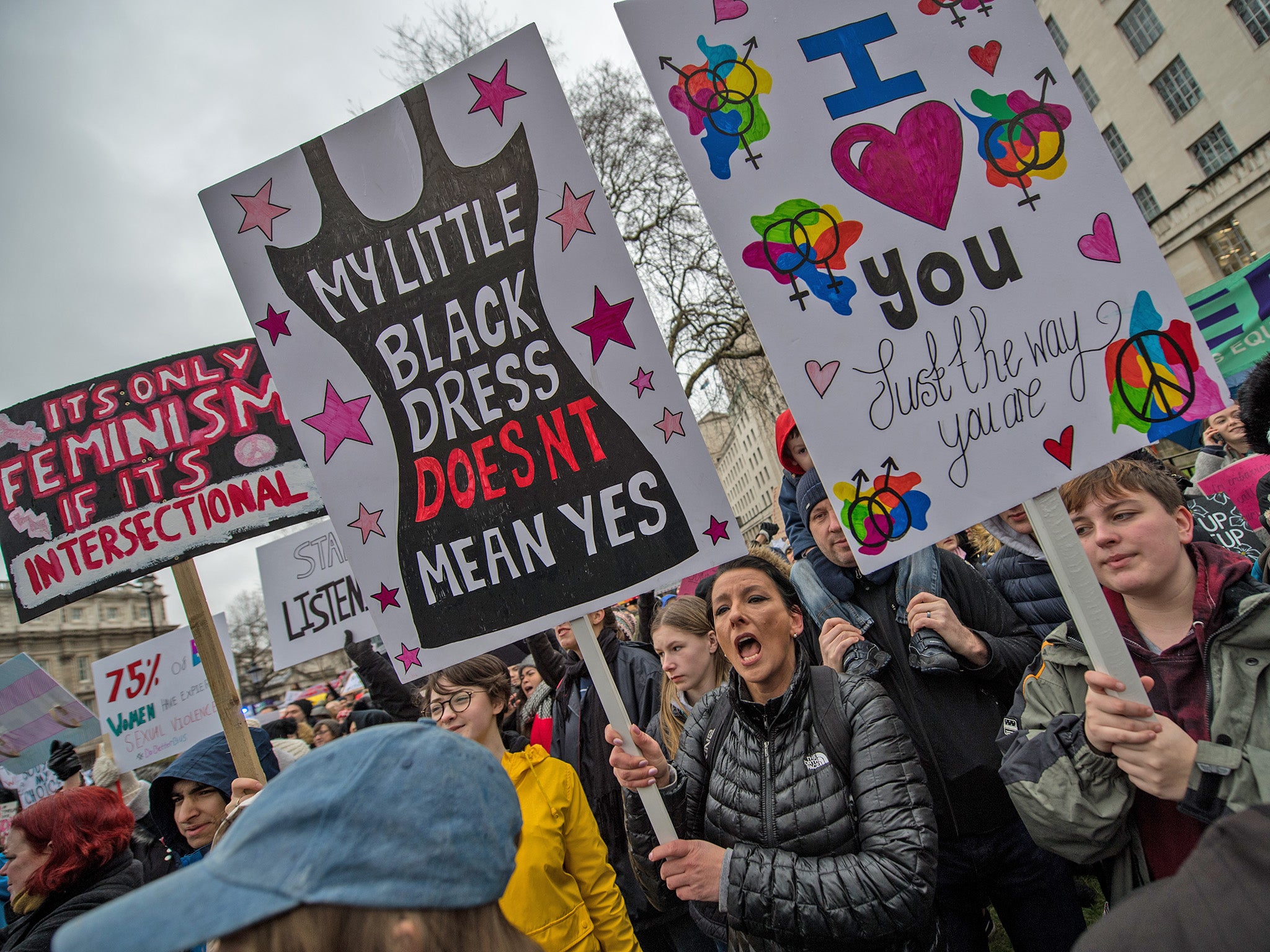I was indifferent about toxic masculinity for most of my life – until I was assaulted
It shouldn’t have taken something like this for me to realise how pervasive and damaging the mistreatment of women is. Who knows how many more women, blinded by internalised misogyny, are in the dark?


In March 2019, I was sexually assaulted on my morning commute to work.
I never thought it would happen to me, and if I had ever thought about it being an issue, I always imagined being one of those brave women who would fight back and publicly shame their attacker.
That was not the case. Instead, I was stunned, unable to move and unable to speak. I felt weak as well as futile before becoming angry with myself for not reacting in the way that I had always thought I would. Although historically, up until the point of that incident, I had been indifferent towards toxic masculinity.
If I venture back into my memories, I guess you could say that I’ve always been an outcast most of my life. The sort of person who has difficulty making friends, my social skills even now aren’t particularly fine-tuned despite being in my early 20s, and I have always been a relatively emotional individual.
My primary school teacher once confronted my mum in the classroom about it, telling her I was a “very sensitive girl” which, amusingly, I responded to by welling up. To my mind, I believe that vulnerability played a role in making me an easy target for absorbing and accepting sexism and the devaluation of women that comes with it.
My first kiss was with a boy called Ben, in primary school. We used to get teased for kissing in the bushes of the school field. It was usually no more than a peck, until one day, Ben tried to give me an “adult kiss” – a french kiss – which left me aghast as an eight-year-old. He responded by quickly agreeing with me that we couldn’t kiss that way because “only grown-ups are allowed to kiss like that”. Consent was a topic of conversation that I didn’t understand or had even been brought into my vocabulary at that age, so the behaviour that Ben demonstrated only encouraged me to believe that this was typical boy behaviour. Men took charge, and women followed.
Later on in secondary school, I was often bullied but fortunately, always shrugged it off. I was a quiet pupil, I kept my head down and focused on my learning, which was the last thing that excited testosterone-addled teenage boys at the time.
I often remember sitting in my science class at the front in one of those wooden chairs with a gap at the back. The boys behind me liked to use their feet to try to toe at my underwear underneath my skirt. They laughed, and again, I didn’t say or do much at all.
As I became a young adult, my life was consumed with online dating via the various apps I’d downloaded on my phone. I would constantly swipe right, accepting most suitors as they popped up on my screen, even in the face of the fact that many of those men would often tell me I was nothing special, but they still wanted to have sex with me. The individuals who were not so direct were the worst, making me believe that they thought better of me than they really did before the ghosting or gaslighting would start to happen.
Although all of these experiences made me feel sad and at times, angry, I felt I could shrug them off very easily in comparison to the assault on the train. I’d grown up with the belief that men took action and women were and should be submissive to it. Growing up, I’d adored films like My Fair Lady in which the main character, Henry Higgins, spoke in a bitter way to Eliza Doolittle, and treated her – frankly – like garbage. Still, she still went back to him, and supposedly lived happily ever after. Rather than recognising that relationship for what it was, I believed this was not just what real love looked like, it was acceptable behaviour too.

As I’ve grown into an adult, I’ve learned more about culture, society, and the roles between men and women. I can’t look at films like that in the same way, and I can’t shrug off toxic masculinity as easily as I had as a child, nor as easily as I did prior to the assault.
I was so upset and angry with myself for being assaulted – which I know now was not my fault – but I also felt angry that men could get away with this type of predatory attack on women. I didn’t understand why I’d allowed myself to naively accept this behaviour for most of my life. But now I know – the media I had consumed and the books I had read as I grew up had constantly fed me the notion that it was all OK.
Toxic masculinity starts at a grassroots level, it begins with childhood affirmation from parents, family members, or school friends, all of whom can play parts in allowing it to continue unchallenged. Although I’ve seen this behaviour from an early age, realising it was wrong did not even enter my mind until that catalyst moment of assault. Who knows how many more individuals – whether adults or children – don’t recognise this behaviour for what it is?
If anything is to change for future generations then everyone, regardless of gender or sex, must be taught about the importance of respect and boundaries. If no significant shift occurs, the future could be far less progressive than we need it to be.
Join our commenting forum
Join thought-provoking conversations, follow other Independent readers and see their replies
Comments
Bookmark popover
Removed from bookmarks